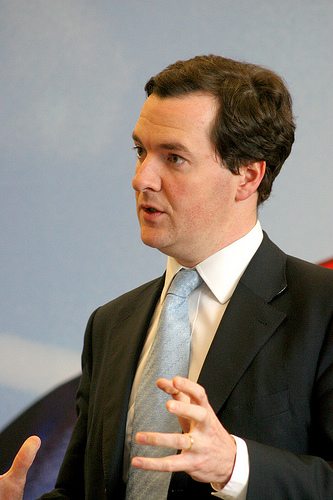

Economy
Osborne to outline surplus rules
George Osborne is expected to use his annual speech at Mansion House to outline plans to limit future governments to maintaining a budget surplus when the economy is growing.
In his annual speech at Mansion House – a historic event at which the Chancellor of the Exchequer gives a speech about the state of the British economy – George Osborne will set out his plans to implement rules that will enforce permanent surplus budget levels.
He is expected to announce that borrowing by future governments would be allowed only in exceptional circumstances. If the plans are successful, it will make the running of the public finances difficult for future governments of any colour because it will mean that borrowing will not be allowed for public investment projects.
Only revenues raised from tax could be used under the measures to fund the day-to-day running of government departments, public services and spending on infrastructure.
Osborne is expected to say, “The result of this recent British election – and the comprehensive rejection of those who argued for more borrowing and more spending – gives our nation the chance to entrench a new settlement.”
He will say that he wants “a settlement where it is accepted across the political spectrum that without sound public finances, there is no economic security for working people; that the people who suffer when governments run unsustainable deficits are not the richest but the poorest; and that therefore, in normal times, governments of the left as well as the right should run a budget surplus to bear down on debt and prepare for an uncertain future.”
He will add, “In the budget we will bring forward this strong new fiscal framework to entrench this permanent commitment to that surplus, and the budget responsibility it represents. This fiscal framework will be voted on by the House of Commons later this year, and assessed by the Office for Budget Responsibility we created.”
Figures from the Treasury show that only seven of the past fifty years have seen budget surpluses – the last of which was a three year run at the end of the 1990s and into the 2000s when Gordon Brown was Chancellor.
Further reading:
We’re live on Crowdcube. To own a share in our tomorrow, click here.
#investaware


 Features10 months ago
Features10 months agoWhat is the Eco-Friendliest Option to Wash Your Dishes?

 Environment12 months ago
Environment12 months agoBuilding a Career in Green Construction: Tips and Insights

 News11 months ago
News11 months ago5 Ways Fleet Maintenance Software Can Help Businesses Be More Eco-Friendly

 Features10 months ago
Features10 months agoAddressing Pressing Ethical Concerns with Crypto Exchanges


















